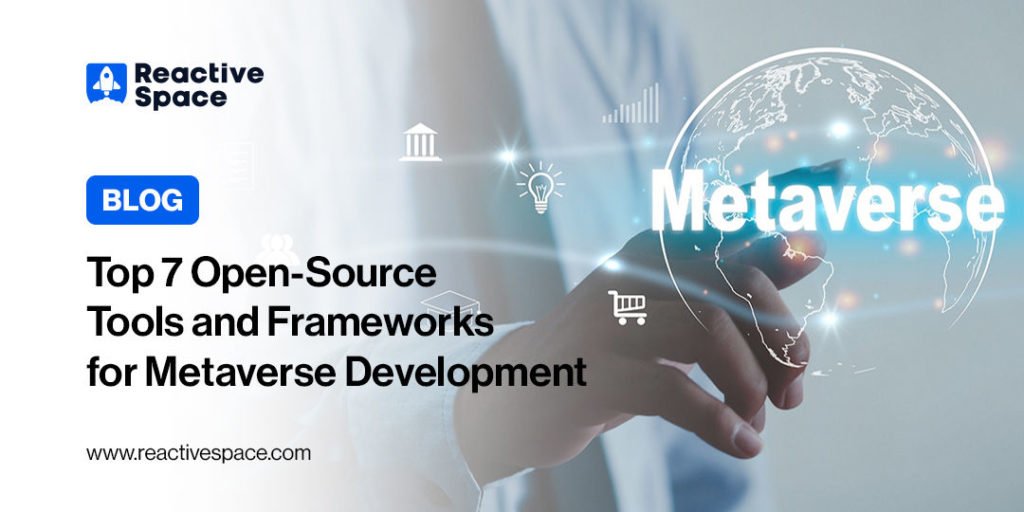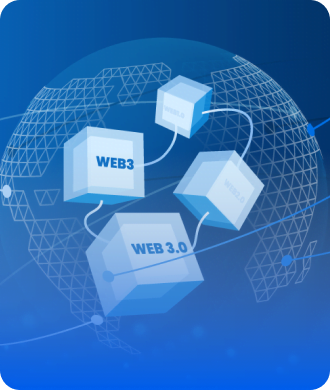
You must witness an up-wailing in metaverse development. But entering a digital realm and bringing your business to the forefront needs a proper structural guide.
Tools and Frameworks for Metaverse Development are reshaping 3D virtual interaction in a more convenient way. It works as the support system in IT infrastructure and the digital realm.
Open-source tools and frameworks.
Tech space is not viable for the public to start from scratch. So, tools and frameworks are built to increase tech adaptability.
What are open-source tools and frameworks?
Open-source tools and software are available to anyone for access, editing, modification, and enhancement.
Open-source software is available with legal copyrights to distribute source code publicly without any restrictions.
Let’s discover the top 7 open-source tools and frameworks for metaverse development:
1. Unity 3D
Crafting Immersive Worlds
Imagine having the power to create entire virtual worlds. Unity 3D, a leading game development engine, is your gateway to making this a reality. It’s equipped with real-time 3D rendering capabilities and a vast library of assets that make it the perfect choice for developers seeking to create immersive metaverse environments. Whether you’re delving into VR or AR, Unity has you covered, promising users a truly interactive and engaging experience.
2. Unreal Engine
Realism That Amazes
When it comes to stunning visual realism, Unreal Engine stands tall. Its advanced graphics and physics engine empower developers to construct lifelike metaverse environments. Whether you’re building a virtual museum or an online game, Unreal Engine provides the tools and assets needed to bring your metaverse vision to life.
3. Decentraland
A Decentralized Metaverse
Blockchain enthusiasts, this one’s for you. Decentraland introduces a unique approach to metaverse development, built on blockchain technology. Here, users can buy, sell, and own virtual land parcels, fostering a decentralized ecosystem. Developers can utilize the Decentraland SDK to craft content and experiences within this blockchain-based metaverse, ensuring true ownership and decentralization.
4. Mozilla Hubs
Collaboration in Virtual Spaces
Mozilla Hubs is your go-to platform for creating collaborative virtual spaces. Whether it’s hosting virtual meetings, conferences, or social gatherings, Mozilla Hubs offers an easy solution. Its compatibility with WebXR ensures accessibility across various devices, making it a versatile choice for metaverse developers.
5. A-Frame
Web-Based Metaverse Adventures
A-Frame emerges as an open-source web framework for crafting VR experiences. Its simplicity and compatibility with web technologies make it an excellent choice for web-based metaverse development. By harnessing the power of HTML and JavaScript, A-Frame allows developers to create interactive metaverse content accessible through standard web browsers.
6. Blender
3D Modeling and Animation Mastery
Blender, a versatile 3D modeling and animation software, is a must-have for metaverse creators. With Blender’s robust features and vibrant community, you can design and animate 3D assets for your metaverse projects. It supports everything from rigging to texturing, ensuring you can craft visually stunning metaverse content.
7. Babylon.JS
3D Experiences in Your Browser
Babylon.js is all about creating web-based 3D experiences within the metaverse. Whether you’re building virtual showrooms, architectural visualizations, or educational simulations, Babylon.js provides the necessary tools to realize your vision. Its support for WebGL and WebXR guarantees cross-platform compatibility.
Conclusion
In this ever-expanding metaverse universe, having a strong arsenal of development tools and frameworks is crucial for crafting immersive and interactive experiences. The tools we’ve explored—Unity 3D, Unreal Engine, Decentraland, Mozilla Hubs, A-Frame, Blender, and Babylon. js—offer diverse options to cater to your specific metaverse development needs.
Keep in mind that the metaverse is still in its infancy, with limitless possibilities on the horizon. By staying updated on the latest metaverse tech and utilizing these open-source tools and frameworks, you can position yourself at the forefront of this digital revolution. Whether your goal is to build a virtual world, educational simulations, or immersive entertainment, these tools empower you to shape the metaverse’s future.



